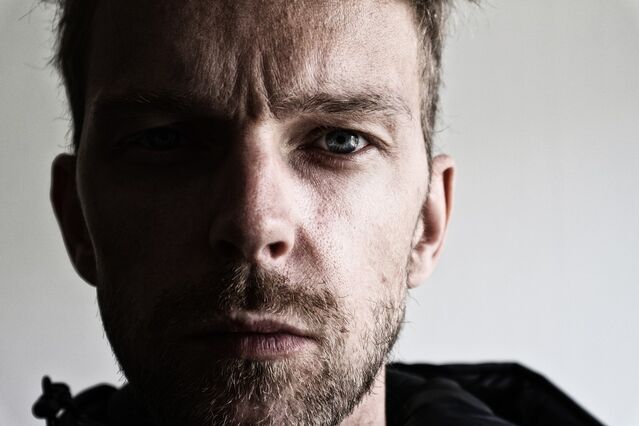Health
The Paradox of Mental Health Diagnosis
Navigating the Yin and Yang.
Posted July 31, 2021 Reviewed by Lybi Ma
Key points
- Diagnosis is both necessary and unnecessary. How can that be?
- The DSM is well-intentioned and continually evolving but it's also incomplete, rigid, inattentive to nuance, and, therefore, deficient.
- Debating what's wrong with you versus what's happened to you.
- How do we reconcile the uncertainty of diagnosis with our quest to do what is in the best interest of our clients?

Show of hands. Who absolutely despises the notion of paradox? Who has a hard time accepting that two opposites can both be true? Because we are a complex species, our cognitive and emotional processes are not limited to but a single set of personality traits, values, or behaviors. We don’t fit neatly into a this-or-that binary. Accordingly, we are not simply good or bad, smart or dumb, selfish or compassionate, mature or immature. We are both, and sometimes simultaneously.
Paradox is also responsible for at least some trepidation with the concept of diagnosis in the counseling profession. While I understand diagnosis is a tool that seeks to provide guidelines, baselines, consistency of care, and an axis for communication between clinicians, I’m uncomfortable with it. Since diagnosis, by its very nature, assigns deficits, it has the potential to label, stigmatize, and shame clients. Diagnosis can perpetuate and exacerbate what I believe to be a shortsighted inclination to focus on “what’s wrong” with a client. The practice of shelving a client’s strengths to seize on their blemishes can adversely affect the individual’s self-concept and, therefore, limit the effectiveness of their treatment.
And then there’s the complication triggered by insurance companies, which demand diagnosis. Managed care has the potential to strip clinicians of our autonomy to do what is truly in the best interest of the client. Psychotherapy is not medicine; it’s an art. We can’t always articulate the nuance of clients and their cases on a homogenized, check-the-boxes claim form. People with the same disorder don’t always present with identical or even similar symptoms. As Terry Real points out in his book, I Don’t Want to Talk About It, depressive symptoms often present quite differently in men and women. Real adds that the symptoms of covert depression, more common in men, do not even come close to fitting the Diagnostic and Statistical Manual (DSM) criteria for depression. No, one size does not fit all.
The grand old master himself, Irv Yalom, wrote critically of our profession’s over-dependence on diagnosis in his book Creatures of a Day. He writes, “I have found the diagnostic process to be largely irrelevant (with less-seriously disturbed patients), and I have come to believe that the contortions we psychotherapists must go through to meet the demands of insurance companies for precise diagnoses are detriments to both therapist and patient. It may, in fact, impede our work by obscuring, even negating, the full-bodied, multidimensional individual facing us in our office.” And, these words come from somebody trained in science as a psychiatrist.
But, not all practitioners agree with Yalom’s assessment. Fellow therapist, teacher, researcher, and writer, James Smith, Ph.D., took issue in a recent social media post. “The idea that diagnosing clients and seeing, respecting, and uplifting their humanity in holistic humanism are mutually exclusive is a false dichotomy. I'm a little surprised that Yalom would express that. Just because I, as a clinician, value accurate diagnoses to determine best interventions doesn't mean I ignore the human being sitting across from me.”
Good point. Our approach doesn’t have to be either-or. It can most assuredly be both-and. Unfortunately, not all clinicians see it that way. The truth is that sometimes we must simply agree to disagree and accept that there is no right or wrong answer. Psychotherapy is like an ice cream stand. There are many different flavors to suit all tastes, but no flavor is the right one or the wrong one.
And shouldn’t we have at least a little trepidation about DSM constructs, based on its somewhat checkered history? In the late 1800s, some of the founding fathers of psychiatric diagnosis embraced slavery and categorized black people as “insane and idiotic.” Up until the 1970s, the DSM labeled homosexuals as “abnormal, pathological, and deviant.” Post-traumatic stress wasn’t recognized as a disorder in the DSM until 1980, five years after the Vietnam War ended. Even today, the DSM does not recognize complex trauma, PTSD. In short, there have been some significant and embarrassing historical flaws in the DSM. It’s far from perfect.
But, to be fair, the process of creating diagnostic standards for mental health is indeed a complex and rigorous undertaking. The DSM is continually evolving and, I think, trying to address issues that adversely impact its diverse constituency. Diagnosis may be essential for treating clients that experience significant distress. Still, the DSM is incomplete, rigid, polarizing, inattentive to nuance, and, therefore, deficient.
How do we navigate the absolutes of diagnosis and not lose sight of each client's unique circumstances? My instinct is that this ambiguity is something each clinician has to figure out for her/himself. We must be true to our beliefs, values, and experience, yet, it behooves us to consider the scientific standards outlined in the DSM. We must always find the best way to serve the client. Period.
I wish I could advance a better understanding of the oxymoronic challenge of diagnosis with an enlightening conclusion or some kind of “Aha” moment. An epiphany would be nice. But I can’t. I’m simply an older than average psychotherapist-in-training, not a vaunted scholar or clinician. I have a solid counseling education and the empathy and intuition derived from extensive, diverse, and dramatic life experiences. However, I don’t have any answers.
This admission of uncertainty makes me feel a bit overwhelmed, inadequate, and ill-prepared. Still, I believe I will find my way and do what’s right for my clients, based on who I am as a clinician and person. I will evolve by being curious, passionate, empathic, challenging, collaborative, directive, cautious, and adventurous. I will both rise and fall every single day in my quest to help my clients. And, as I’ve been reminded innumerable times, it’s the counselor-client relationship that matters most.
Where does all this leave us? Right back where we started with the conundrum of paradox. There are no easy answers, few absolutes, and too much uncertainty. Diagnosis is indeed a tough nut to crack. The protocol may feel a bit clumsy, incongruous, and sometimes even absurd, but I’m okay with that. I’ll work with it and through it so I can do what’s best for my clients. Deep breath. Yes, I can make peace with paradox. What about you?




